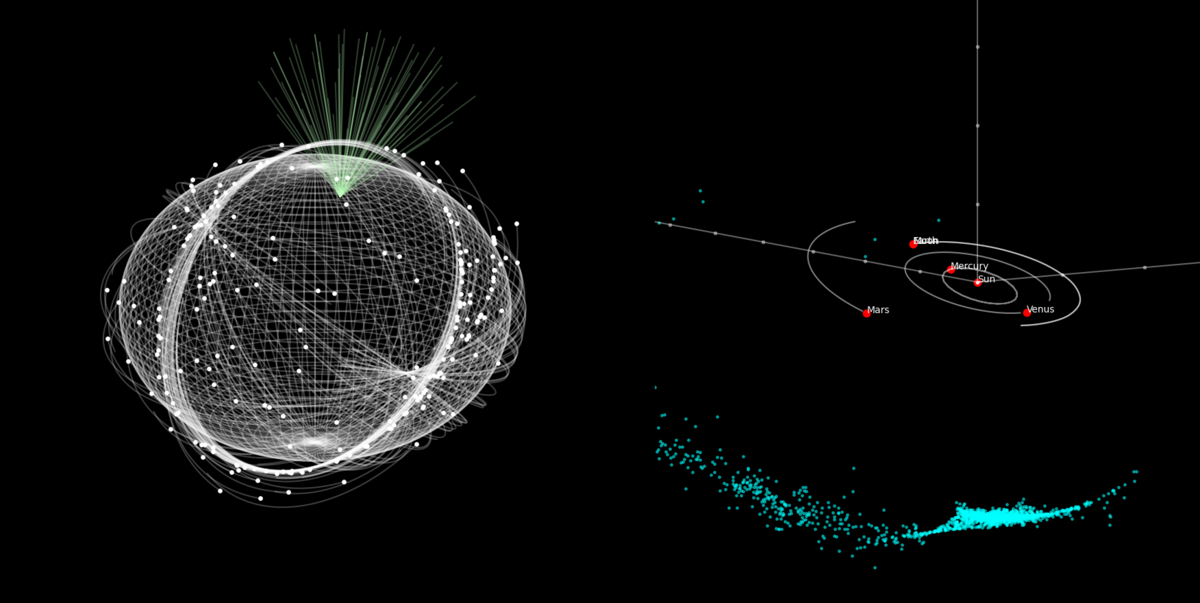
PhD student in space physics (dnr: 2.2.1-362/25)
Description
The large number of new satellites significantly increases the risk of collisions and requires careful mapping of space objects. The Swedish Institute of Space Physics (IRF) and EISCAT AB are developing signal analysis and experiments to make three-dimensional measurements of meteoroids and space debris, using the new EISCAT_3D research radar. Data processing for space objects will be developed in parallel with data processing for ionospheric physics and for example observations of auroral processes. This project uniquely combines modelling and analysis of radar data.
Job description
EISCAT_3D is a radar system for space and atmospheric research which has been under construction in northern Scandinavia since 2017. IRF and EISCAT are developing advanced technical methods to enable three-dimensional measurements of space objects using EISCAT_3D. Once fully developed, EISCAT_3D will be capable of measuring the orbits of space debris as small as a few centimetres. These space objects' orbits can be determined using a single measurement from EISCAT_3D's three receiving stations.
IRF will work closely with EISCAT AB to study:
- how the highly variable ionosphere at EISCAT_3D's latitude affects the quality of orbit measurements,
- how well ionospheric effects can be corrected by measuring space objects and the electron density in the ionosphere with a single radar experiment, and
- what EISCAT_3D's antenna gain looks like at the antenna, group, and antenna field levels.
Data processing for space objects is being developed in parallel with data processing for ionospheric physics. This will enable better data products for both observation modes. The project's objective is to significantly enhance the capacity to measure and track space objects for the application of space situational awareness applications using the EISCAT radar systems. The methods developed will be described in peer-reviewed publications and made available to the international research community.
The three project objectives enable you to conduct unique research studies of the Earth's space debris environment and meteors.
Qualifications
Basic eligibility for admission to doctoral education is granted to those who have completed an advanced level degree, or completed course requirements of at least 240 ECTS credits (högskolepoäng), of which at least 60 should be on an advanced level (Master's level), or equivalent. To meet the specific eligibility requirements for admission to doctoral studies in space physics, applicants must have passed courses in the subject area of physics worth at least 120 ECTS. Those who have acquired essentially equivalent knowledge in other ways, either within or outside the country, are also eligible. The requirements do not need to be met at the time of application, but only at the time of admission. More information about the education at Umeå University.
We are looking for someone who wants to work in an intercultural and international environment and has a high ability to work both independently and as part of a team. Fluency in English is mandatory. Working with radar data from space objects may require you to undergo a security clearance.
You should have good programming skills (Python, C++, or equivalent). Experience of signal processing, inverse problems, and/or numerical calculations in areas related to the work is an advantage.
Conditions
The doctoral student will be admitted to the Department of Physics, Umeå University, and will be employed and placed at the Swedish Institute of Space Physics in Kiruna. As a doctoral student, you will focus on your research studies by conducting your own research under supervision and taking doctoral courses. The goal of a doctoral position is to obtain a doctoral degree. The period of employment is limited to the equivalent of four years of full-time work and begins in January 2026 or upon agreement.
What we offer
We offer a workplace with flexible working hours, up to seven weeks of vacation per year, comprehensive healthcare including wellness programs, health benefits, and access to an on-site gym.
Equality, equal opportunity, and diversity are fundamental principles in our workplace. We work in an equality-integrated manner, meaning that gender and diversity aspects are considered in daily work and all decision-making processes.
The application should include the following:
- short personal letter (max. one page) summarising your research interests and motivation.
- CV
- Certified copies of degree certificates (with English or Swedish translation if applicable)
- A list of university courses with grades. Please note that for international applicants, the grading system should be explained briefly.
- Copy of Master's thesis and publications (if applicable).
- Names and contact details of two referees.